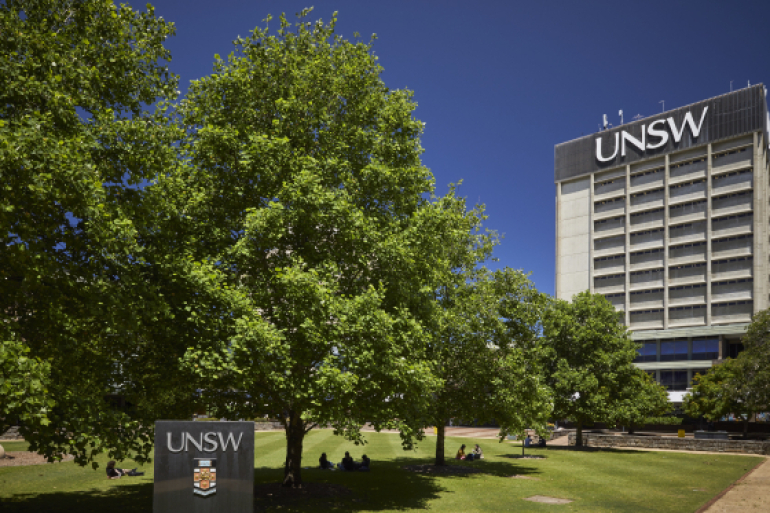To mark Global Climate Change Week, UNSW Sydney has released its new Environmental Sustainability Plan which sets out its response to environmental issues such as climate change and biodiversity loss.
The Environmental Sustainability Plan 2022-24 deepens UNSW’s commitment to environmental sustainability. The new plan identifies three themes: Climate Action, Living Campuses, and Resource Efficiency, which guide the University’s strategic planning and contribution to the United Nations Sustainable Development Goals (SDGs). Thirteen targets define the outcomes that UNSW seeks to achieve by 2025, supported by a range of key initiatives.
This includes UNSW maintaining net zero operational emissions and targeting net zero emissions from its value chain, including suppliers, travel, and investment activities. New initiatives focus on electrifying UNSW campuses, sustainability in lab spaces and increasing onsite solar capacity.
New goals include achieving a net gain in biodiversity value at Kensington campus, at least 80 per cent of campus retailers achieving Plastic Free Dining gold status, as well as increasing targets for energy and water efficiency, waste reduction and onsite solar photovoltaic (PV) capacity.
One of the new major new initiatives in the plan is the establishment of the Fowlers Gap Arid Zone Research Station as a dedicated conservation site. Research opportunities at Fowlers Gap include the restoration of arid zone ecosystems and their future under the effects of climate change.
UNSW Vice-Chancellor and President Professor Attila Brungs said UNSW takes seriously its responsibility to contribute to a sustainable natural environment and ensure a more liveable future.
“The UNSW Environmental Sustainability Plan 2022–24 acknowledges that our planet is at a critical point, with the window to tackle the existential threats of climate change and nature loss closing rapidly,” Professor Brungs said. “UNSW made significant progress on a range of environmental sustainability initiatives under the Environmental Sustainability Plan 2019–21, and we are deepening our commitment to environmental performance with the updated plan.”
William Syddall, Head of Environmental Sustainability, highlighted how UNSW students and staff can contribute to the new plan. “Our plan includes a smaller number of more ambitious targets and initiatives to focus our energy on what matters the most. We’ve created an action plan template to support UNSW faculties, divisions and units who wish to contribute to environmental sustainability at UNSW, as well as a set of practical resources to help UNSW students and staff embed good practices into their day-to-day activities. These resources can be found on the new environmental sustainability website”.
Key achievements
Key achievements from the Environmental Sustainability Plan 2019–21 include:
- Becoming the first university in Australia to switch to 100% solar renewable electricity in 2020
- Developing and launching Plastic Free Dining to phase out single-use plastics from campus retail dining services
- Implementing new recycling systems in office and external areas
- Implementing a range of energy and water efficiency initiatives, including smart building systems, to improve user comfort and energy efficiency
- Completing and launching the SDG Toolkit and SDG Module to enable UNSW academics to integrate sustainability thinking into their courses
The development and implementation of the Environmental Sustainability Plan are led by the Environmental Sustainability Unit, Estate Management in the Division of Operations, in collaboration with staff and students across UNSW faculties and divisions. Environmental sustainability is a key element of the University’s 2025 Strategy.
